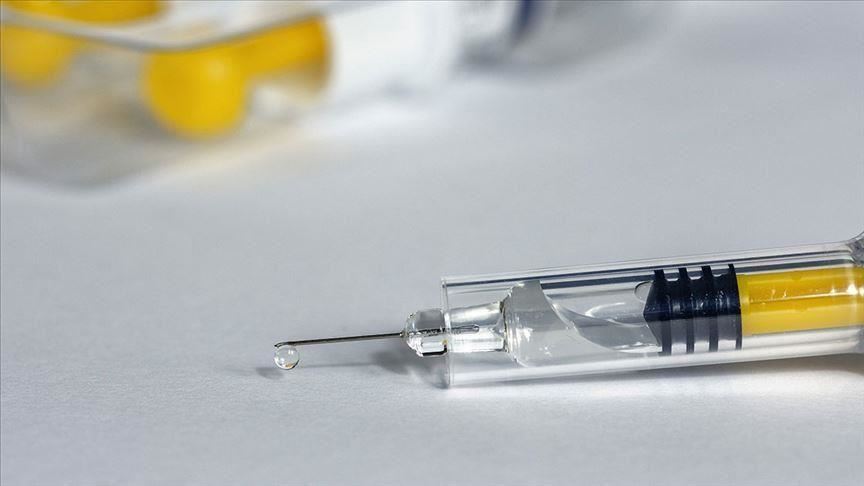ID :
562452
Mon, 04/13/2020 - 23:19
Auther :
Shortlink :
http://m.oananews.org//node/562452
The shortlink copeid
No vaccine, specific drug against coronavirus yet: WHO

Global health organization says nearly 90 countries taking part in its clinical trial for antiviral drug against COVID-19
GENEVA
More than 100 days into the arrival of the novel coronavirus, there is no vaccine or a specific antiviral medicine to prevent or treat COVID-19, said the World Health Organization (WHO).
“No pharmaceutical products have yet been shown to be safe and effective for the treatment of COVID-19,” the WHO cautioned.
The organization, however, said that some medicines have been suggested as potential investigational therapies.
Many of these are now being studied or will soon have clinical trials, including the international Solidarity trial co-sponsored by the WHO and its partners.
The global organization said that more than 90 countries are involved in the Solidarity trial to help find an effective treatment of the disease.
“The Solidarity trial provides simplified procedures to enable even overloaded hospitals to participate with no paperwork required” as of April 8, according to the WHO.
The WHO scientists stated that it will likely take at least one year to 18 months to develop a vaccine with the proper testing.
Dr. Mike Ryan, executive director of WHO’s emergency program, stressed that the trials are necessary and said in March that a “bad vaccine” could be as dangerous as a virus such as that of COVID-19.
“We will put together a mechanism, and we will appoint senior people from the north and the south that will work out the details of how they can accelerate production, but at the same time how they can ensure equitable distribution,” said WHO Director General Tedros Adhanom Ghebreyesus.
“When a vaccine or medicine is ready, we have to be able to deliver it to all over the world. There should not be a divide between the haves and the have-nots,” he told a news conference on April 6.
As of April 11, three candidate vaccines were in a clinical evaluation.
One is China’s CanSino Biological Inc./Beijing Institute of Biotechnology, another is the U.S. company, Inovio Pharmaceuticals, and the third is the joint effort of Moderna/NIAID in the U.S.
There are a further 67 candidate vaccines in preclinical evaluation in countries such as Australia, Canada, China, France, Germany, Hong Kong, India, Japan, Spain, the U.K., and the U.S.
“The greater the number of participating countries, the faster results will be generated,” said the WHO.
The organization said it is facilitating access to thousands of treatment courses for the trial through donations from several manufacturers, and it is also inviting developers and companies to collaborate on ensuring affordability and availability of the treatment options if they prove effective.
Last week, Tedros called on “all countries, companies and research institutions to support open data, open science and open collaboration so that all people can enjoy the benefits of science and research.”
The WHO said that based on evidence from laboratory, animal and clinical studies, the following treatment options were selected: Remdesivir, Lopinavir/Ritonavir, Lopinavir/Ritonavir with Interferon beta-1a, and Chloroquine or Hydroxychloroquine.
Remdesivir was previously tested as an Ebola treatment and generated promising results in animal studies for Middle East respiratory syndrome (MERS-CoV) and severe acute respiratory syndrome (SARS), which are also caused by coronaviruses, suggesting it may have some effect on patients with COVID-19.
Another treatment uses Lopinavir/Ritonavir, a licensed treatment for HIV.
Evidence for COVID-19, MERS, and SARS has yet to show it can improve clinical outcomes or prevent infection. This trial aims to identify and confirm any benefit for COVID-19 patients.
While there are indications from laboratory experiments that this combination may be effective against COVID-19, studies done so far in COVID-19 patients have been inconclusive.
Also cited are chloroquine and hydroxychloroquine that are very closely related and used to treat malaria and rheumatic diseases.
The WHO said in China and France, small studies provided some indications of the possible benefit of chloroquine phosphate against pneumonia caused by the new coronavirus, but they need confirmation through randomized trials.
The fourth drug cited is Interferon beta-1a that is used to treat multiple sclerosis.





